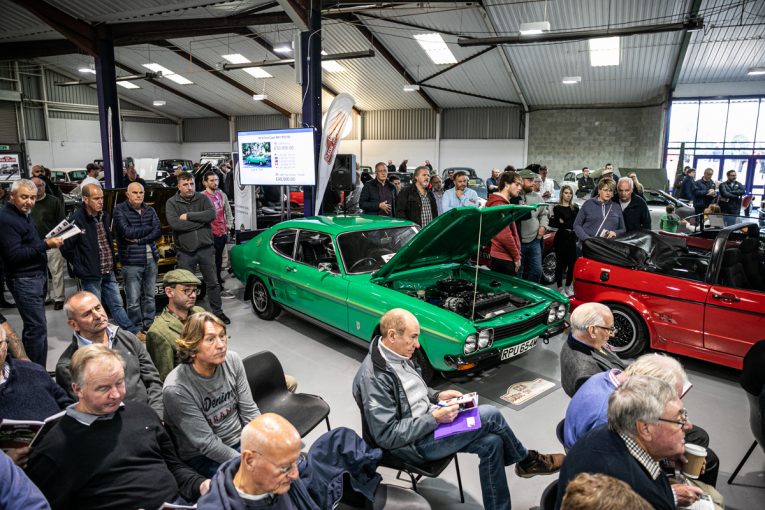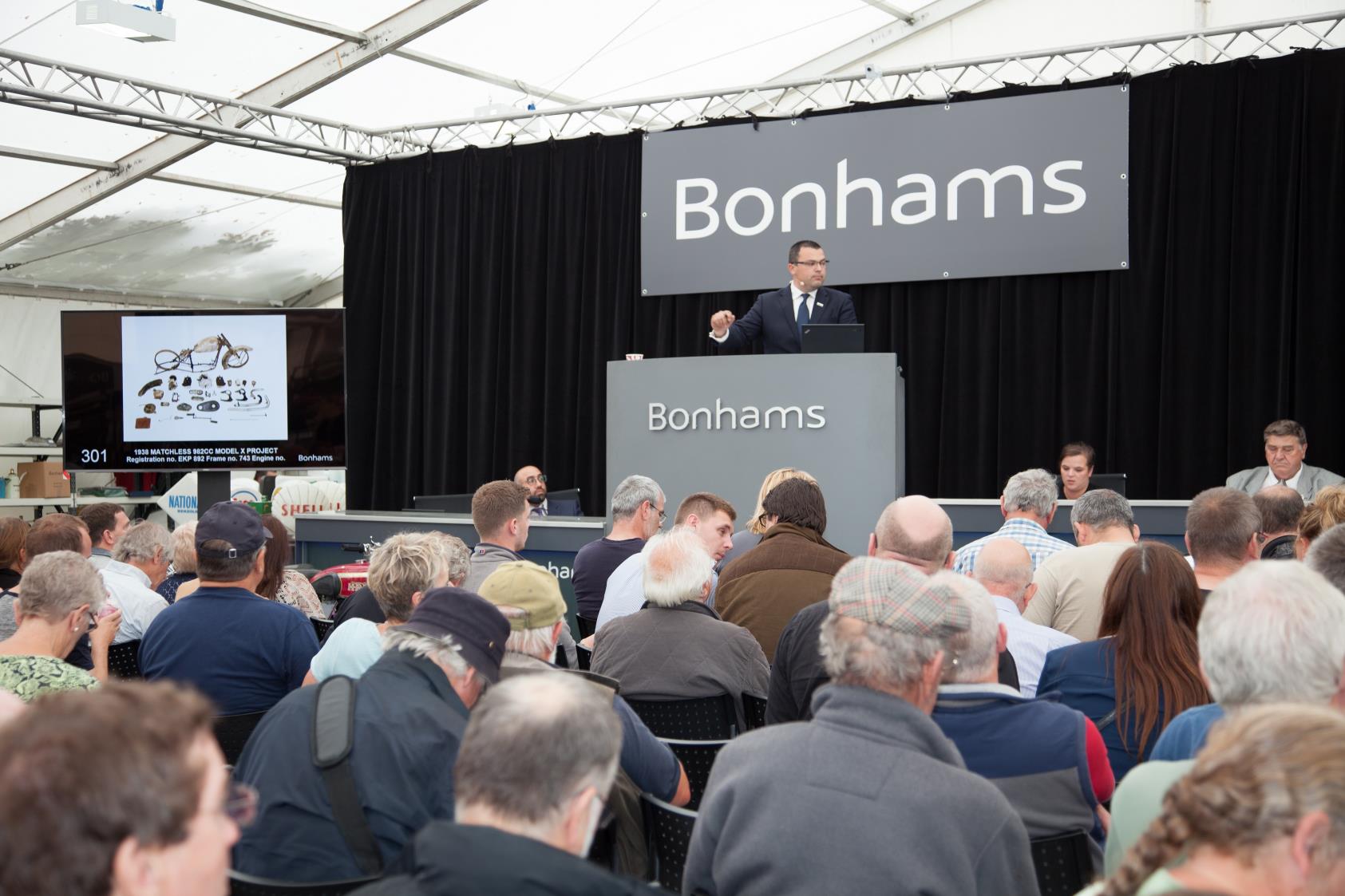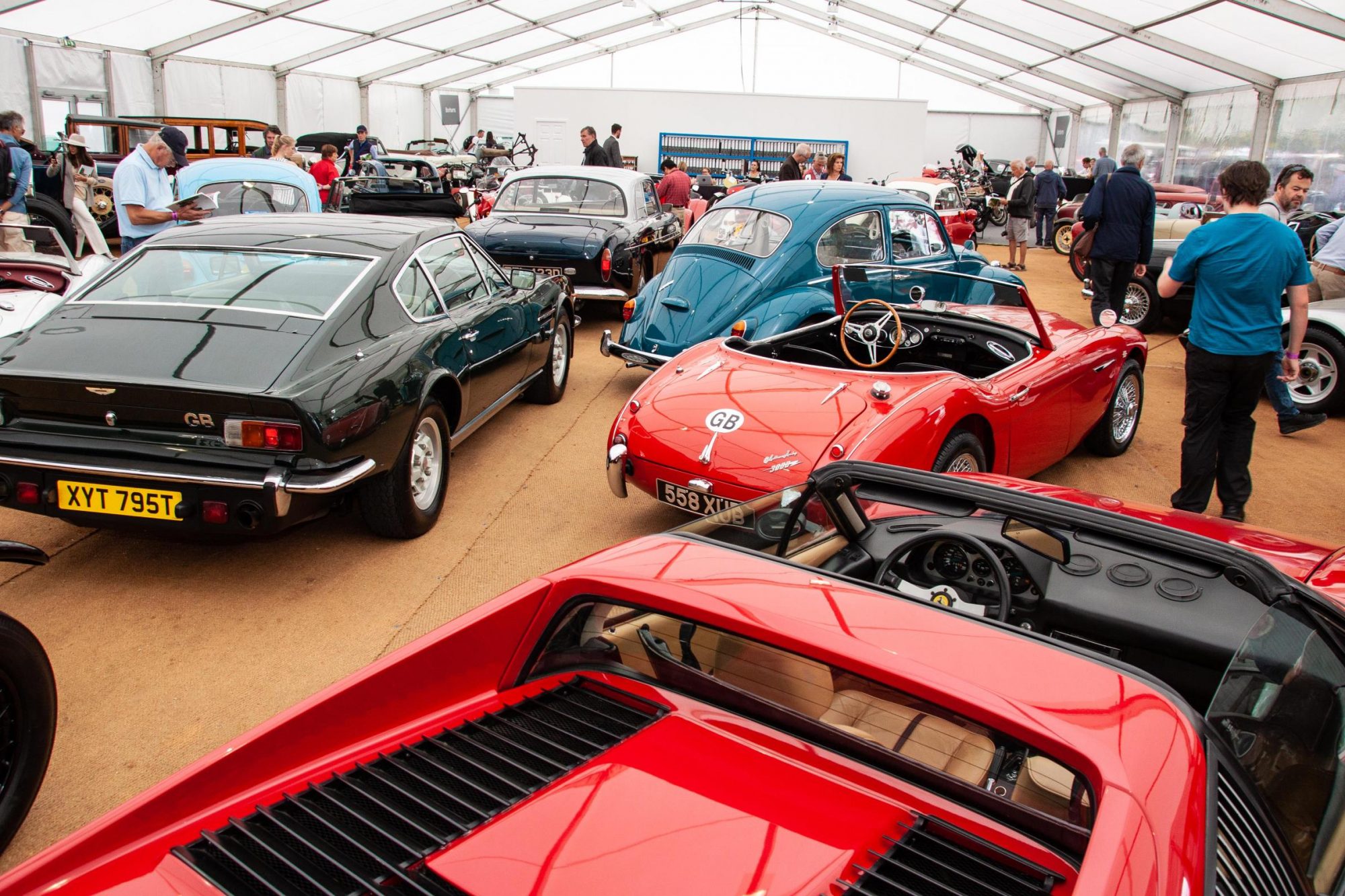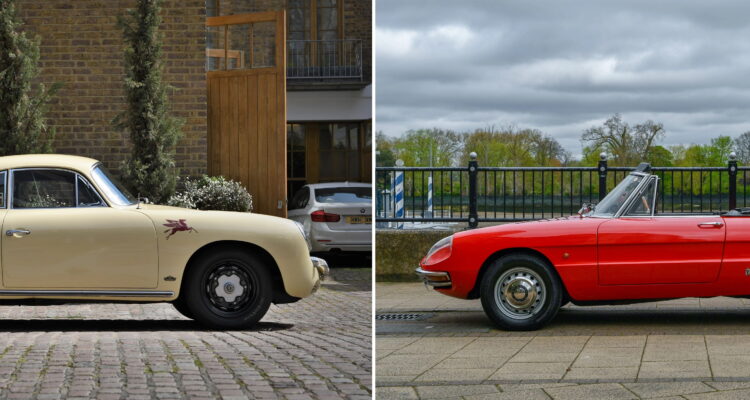Five Tips For Buying From Auction

Auctions are fast-paced, exciting and can often be a great way of getting a bargain. However, because they’re so fast-paced, and because they’re full of people that have been going to auctions since they left the womb, they can be incredibly intimidating to those who have never set foot in the bidding circle. So is that it? Because you don’t have decades of experience, should you just leave it? Of course not, and here’s why. Experience doesn’t matter. The chaps in the big coats with the furrowed brows want you to think there is a special set of skills needed in order to buy a classic car from auction. Why? Because they don’t want the competition, that’s why.
Don’t be scared off by the old guard. The world of classic car auctions is as open to you as it is to them. The trick to surviving, and not walking out of the venue with no money and a bag of rust, is to follow these five steps. Do that, and you will be an auction pro in no time. Now, get that bidding arm warmed up!
1) Research
Classic car auctions are not all cloak and dagger. They are not a world shrouded in secrecy that is only accessible via a predetermined handshake. If they were, punters would only have a small amount of time to see cars and decide on whether or not to bid. That would be a poor business model.
The reality, as you will have seen via some of the listings on Car & Classic, is that auction houses will advertise their auction lots well ahead of time. This gives you the opportunity to spend time researching how that make and model is behaving in the market, it gives you a chance to look at that particular car’s history thanks to Government websites or via Cazana. Only a fool would go to auction without having done some cautionary and fundamentally, free research. This is your time to do that. Remember, knowledge is power.
In a nutshell, these listings give you a window into the history and market position of the car. This frees you up to focus only on the physical stuff when you’re presented with the car at auction, which leads us to…
2) Get there for the viewing day
Any auction house worth its salt will offer a viewing day, normally the day before the auction itself. This is it, this is your window of opportunity to physically get hands on the car and to check it over as best as possible. Get in it, get under it, get around it, make sure it satisfies your criteria. A car, as we all know, can look great in a picture but be an absolute horror in real life. This is your chance to make sure the car you want isn’t one of these.

Look the car over carefully for any signs that it may have been tarted up for sale. Too much tyre slick, hastily-applied paint in places, a suspiciously clean engine, that kind of thing. Some less than trustworthy sellers will use the fast-paced route to a commitment to buy to unload unpopular stock. This viewing day is your opportunity to make sure you’re not buying one of those cars.
The viewing day also gives you a chance to put on your spy hat. Hang back and watch the lots you’re interested in bidding in. See what sort of interest they get, is anyone investigating them in as much detail as you? This is all vital information as it will give you an idea of what you’re going to be up against when the bidding starts.
3) Have a limit and stick to it
It sounds obvious but in the heat of the moment it can be worryingly easy to get carried away and throw caution to the wind. You do not want to do this. If you do, you’re going to end up paying thirty grand for a 1998 Nissan Micra. To avoid this, find the cars you want and set a limit in your head. Then, and this is easier said than done, stick to that limit. If you go over your own limit, it’s only you who is losing.

There is no denying that it’s painful when a car slips through your fingers, but remember, you set that limit for a myriad of reasons. Market value, the condition, all of the information you found out based on going to the viewing day. That limit you set is logical and sound. If the car goes for more, it wasn’t meant to be.
Auction houses are very good at piling on the pressure and also bringing about a sense of rivalry between bidders. They want this, as it makes the bidding personal and makes people more competitive. An auction house is in the unusual position of not needing to warrant or guarantee on the products. As such, all it wants to do is sell, and sell for the highest amount. THAT is why setting yourself a limit is important.
4) Have the funds and transport ready
When the hammer falls and the final bid is yours, it’s time to move. Auction houses expect expedience once a car is sold. They’re not there to house the car for two weeks whilst you arrange transport and they’re not there to let you pay in ten days time. You have to pay there and then and, in most cases, the auction house will want the car gone on the same day, too. Many will let you leave the car, but only if the car itself is paid for, and only if you pay storage charges in advance, which won’t be cheap.
As such, if you’re going to an auction to buy, you need to make sure you’ve turned up with a trailer or with a mate and a set of trade plates. If you can’t pay for the car, you’re going to be in trouble with the auction house and it could lead to a ban on future auctions, and that’s the last thing you want. Yes, all this sounds like solid, common sense advice, but you’d be surprised by how many people mess up at this stage. Don’t be one of them.

5) Go to an auction as a spectator
If, after reading the four steps above, you still don’t feel you’re ready, that’s fine. There is one more thing you can and should do, and that’s go along to an auction as a spectator. Take the pressure of actually buying a car out of the equation and it becomes a fun, enlightening experience. You can get acclimated to the chaos that is the auction hall. You can familiarise yourself with how the bidding works, you can speak to other bidders to gain valuable information and tips. And you’ll get to see some cool old cars, too.
Go along and pick a car or two, have a practice run of sorts. Go through the four steps above, but stop short of bidding. See how and where your research is of benefit. Learn how best to approach the auction when the time comes for you to actually bid. Knowledge is power, as we said earlier, and a practice run will fill your knowledge bank nicely.


